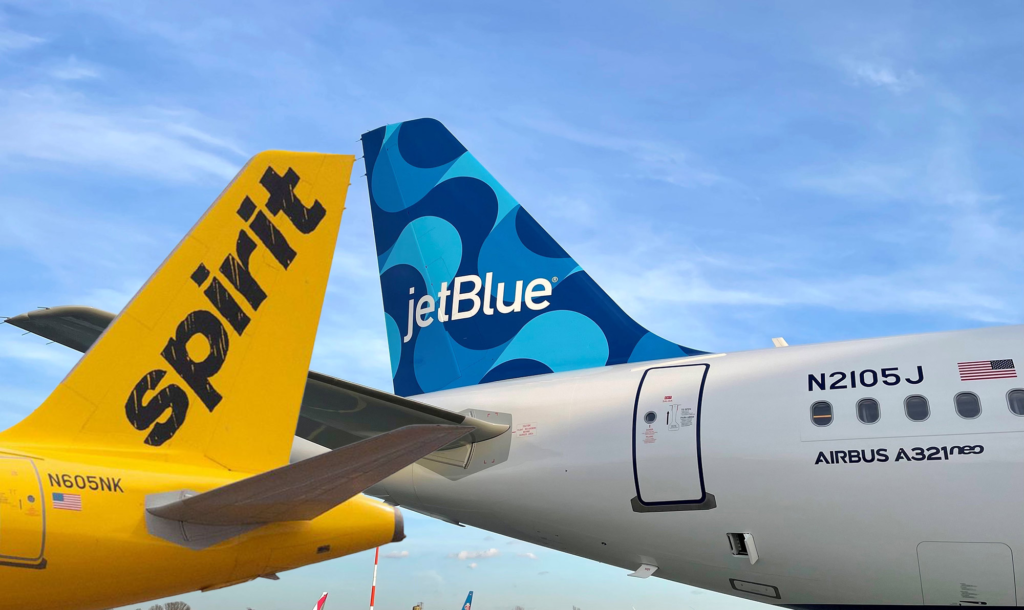NEW YORK- Currently, all attention is focused on the U.S. Justice Department’s attempt to prevent JetBlue (B6) from acquiring Spirit Airlines (NK) for $3.8 billion, a valuation nearly three times Spirit’s current market capitalization.
Evidently, the market expresses skepticism regarding the deal’s likelihood of approval. Spirit’s stock has remained in the high teens for over a year as the potential merger awaited resolution, experiencing a recent decline to sub-$9 levels before swiftly recovering to around $12.50 per share at the time of writing by Seeking Alpha author.
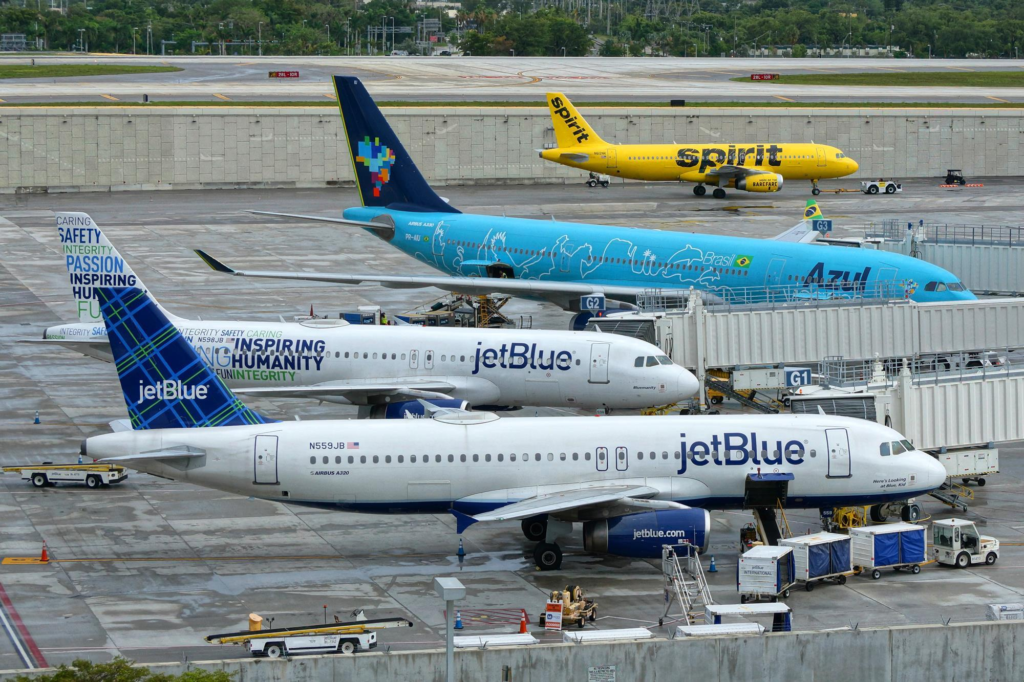
JetBlue-Spirit Merger
At $9, Spirit presented an attractive value proposition, offering potential upside even if the merger were blocked. However, at $12.50, investors are assuming a higher cost for the same risk. Despite this, it might still be a favorable gamble for those optimistic about the airline’s trial outcome.
In April of last year, Seeking Alpha’s Herman Schroeder conducted a comprehensive analysis, rating Spirit as a Strong Buy and emphasizing its merits as a standalone entity.
While Spirit has garnered significant attention as a takeover target, Mr. Schroeder’s thorough examination of its financial and competitive standing concluded that, even without a takeover, the stock represents a solid albeit risky investment. His insights remain relevant, providing a basis for assessing downside risk in the broader expected value equation, regardless of the merger’s outcome.
It’s worth noting that the stock was $16 per share when the analysis was published, compared to the latest $12.50, with minimal changes in the company’s fundamental position.
Related Read: JetBlue Buying Spirit Airlines Because of New Airbus Planes – Aviation A2Z
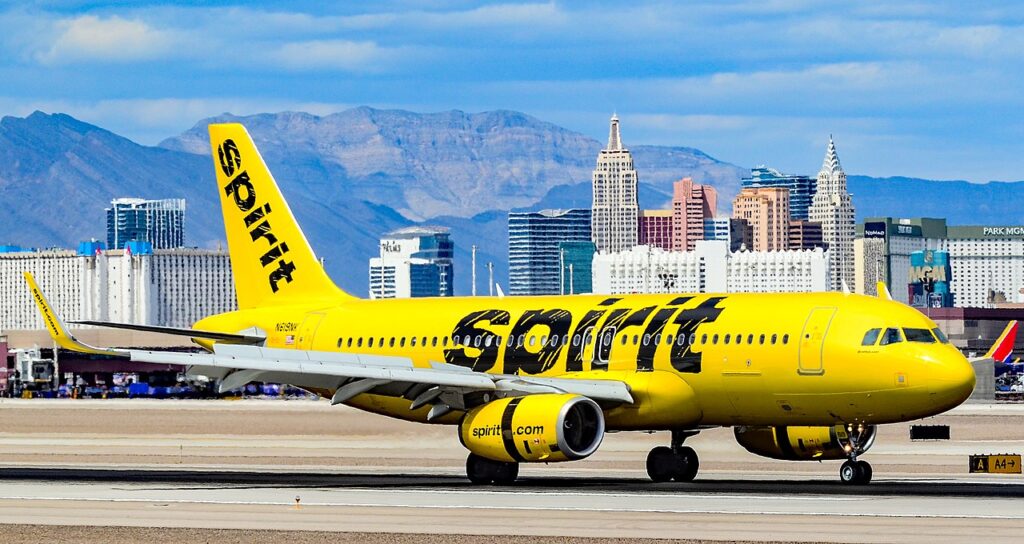
Third Quarter Report
Spirit Airlines delivered an underwhelming 3Q earnings report between the previous analysis and the present, reporting a further $157 million loss. Notably, there was a 17% decline in TRASM (total revenue per available seat mile) compared to only a 7% reduction in CASM (cost per available seat mile).
Reports from Pratt & Whitney also suggest that Spirit’s ongoing neo-engine issues and associated aircraft groundings are anticipated to persist until at least 2025. This development is undoubtedly unfavorable for a company dealing with significant debt and operating at a loss in a high-interest rate environment.
Spirit is currently trading around its tangible book value of approximately $12 per share, making it an intriguing prospect for followers of Benjamin Graham. Initially, book value appears to be a reliable indicator of intrinsic value, especially for asset-intensive businesses like airlines.
Spirit’s tangible equity is precarious, having lost nearly a billion dollars of book value since before the pandemic, with tangible equity diminishing daily as operating losses accumulate.
Nevertheless, the stock still presents itself as a cost-effective option when compared to its closest competitor in the ultra-low-cost sector, Frontier Group (F9), which is presently priced at a premium exceeding 60% of tangible book value.

JetBlue Paying Premium for Spirit’s Assets
Moreover, an airline’s value extends beyond its fleet, as American Airlines (AA) has deep negative equity. JetBlue’s willingness to pay a substantial premium for Spirit’s assets underscores this point. It’s not the Spirit brand itself, as JetBlue intends to integrate Spirit and eliminate the brand entirely. So, what explains this disparity?
A video by Coby Explanes delves into why JetBlue (and potential suitors like Frontier) might find Spirit valuable: its gate and runway slots across the nation’s busiest airports.
An article in The New York Times once highlighted the challenges even established carriers face in securing coveted terminal gates and runway slots at desirable airports, considering it a significant obstacle for airline startups.
The NYT quoted current JetBlue CEO Robin Hayes, who remarked, “In some cases, you’ll find carriers hanging on to gates even when they don’t need them just to stop other airlines from coming in.”
Coby Explanes argues that Spirit could be JetBlue’s final opportunity to acquire the routes essential for realizing its coast-to-coast expansion ambitions, positioning itself as a true competitor to the Big Four.
Direct Flights showcases all airports where Spirit has a presence, with its primary hub in Fort Lauderdale and significant operations in locations like Orlando, Las Vegas, Baltimore, the Texas Triangle, and Los Angeles.
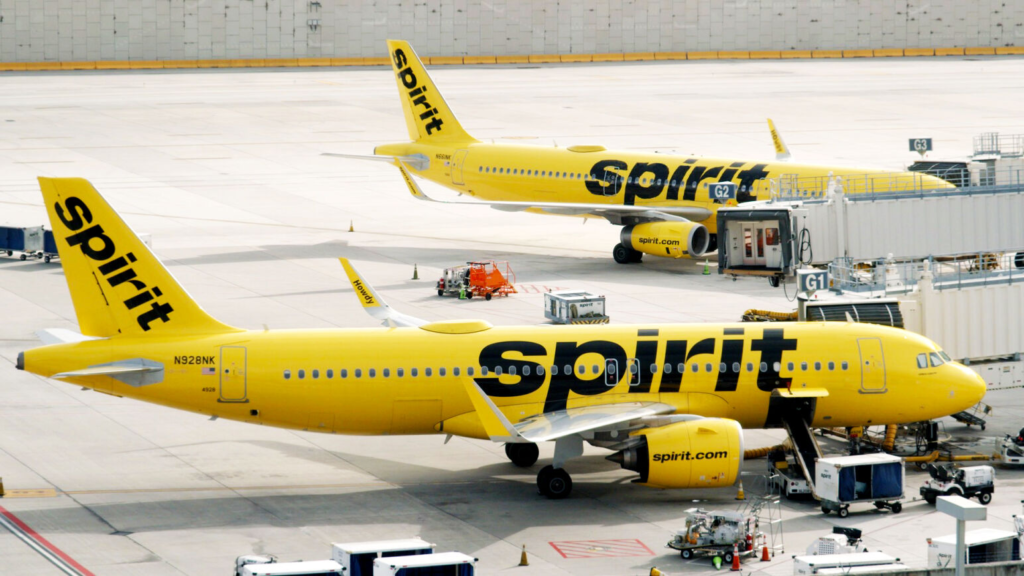
Complete Package
By amalgamating the worth of Spirit’s tangible assets (aircraft) and intangible assets (rights-of-use for gates and runways at airports in prime locations), the carrier’s overall value as a bundled package appears significantly higher than its present market valuation.
The hard assets alone, excluding debt, amount to $12 per share. Although Spirit does account for operating lease rights-of-use assets on its balance sheet (refer to 10-K page 95), the majority pertaining to aircraft and spare engine leases ($3.98 billion out of $4.14 billion, or 96%).
Leases with variable provisions aren’t recorded as assets, and those included have an estimated value solely based on the sum of lease payments over the lease term, assigning zero value to the challenges associated with acquiring these leases initially.
Some assets are beyond monetary valuation, leaving Spirit’s routes and airport facilities unseen assets absent from the balance sheet – assets that at least one competitor (JetBlue) deems worth over $2 billion (the buyout offer minus Spirit’s tangible equity).
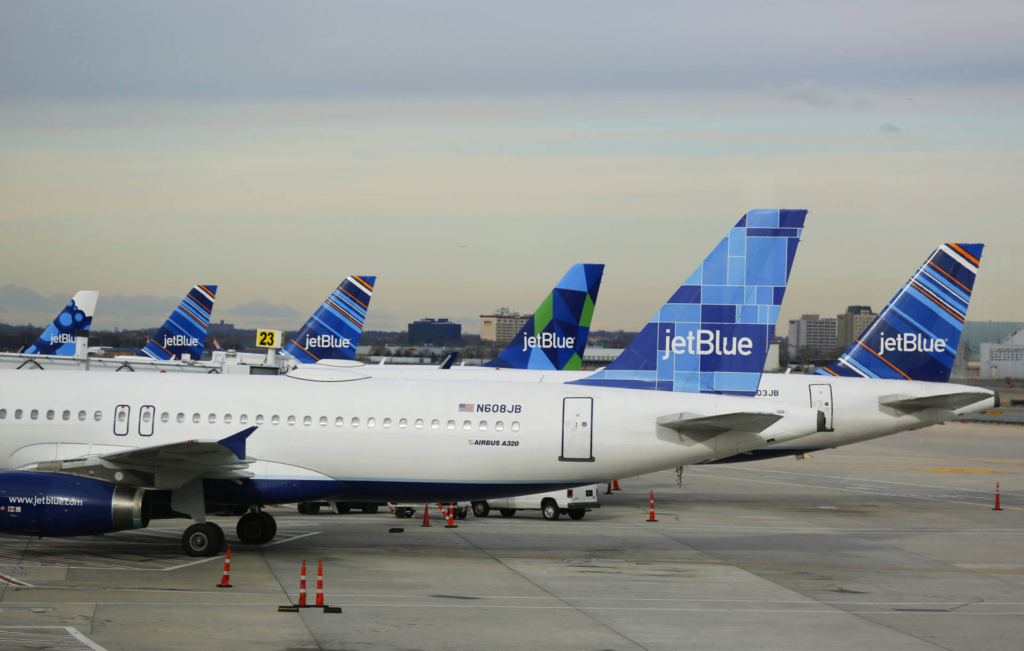
What If Merger Fails?
Certainly, the optimal scenario for Spirit investors would involve successfully completing the JetBlue deal, thereby transferring the debt burden to another entity.
If the Justice Department blocks the JetBlue merger, alternative airlines might step in with potential bids, with Frontier (F9) being a likely contender to revisit negotiations.
Should no suitable suitor emerge, Spirit could independently navigate a course toward profitability once again. This situation is far from a binary play with outcomes restricted to $30 or $0.
For those adopting a bullish stance, adopting a long position with the stock offers a more favorable risk-reward profile, allowing multiple opportunities to capture the upside.
This is in contrast to opting for long options, where even if the JetBlue deal materializes, the trial might extend beyond expectations, the acquisition price could undergo renegotiation, or unforeseen events might transpire, causing call options to expire without value.
Stay tuned with us. Further, follow us on social media for the latest updates.
Join us on Telegram Group for the Latest Aviation Updates. Subsequently, follow us on Google News.

